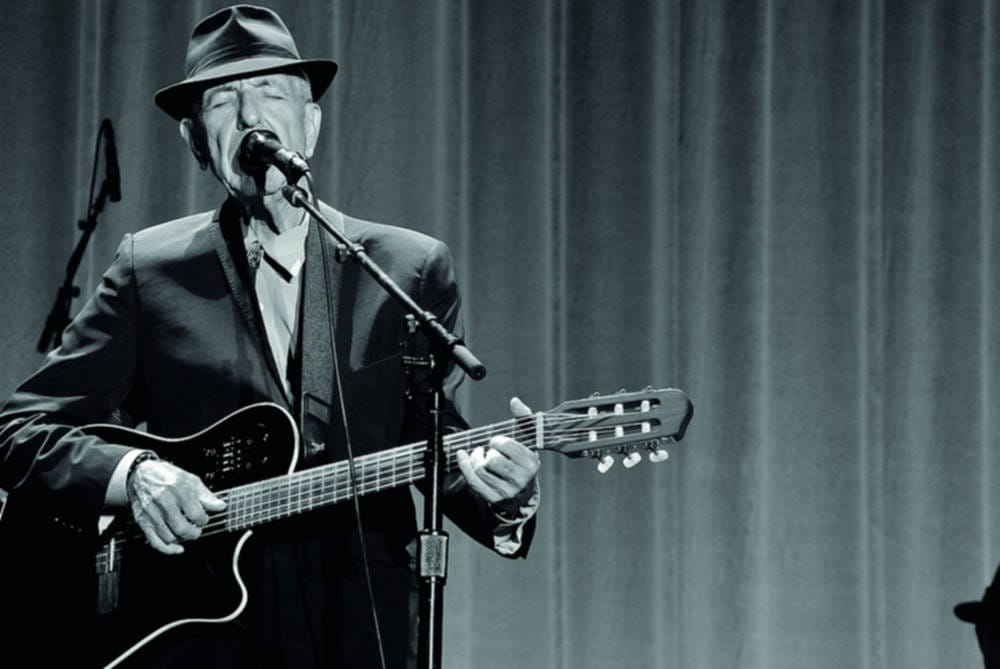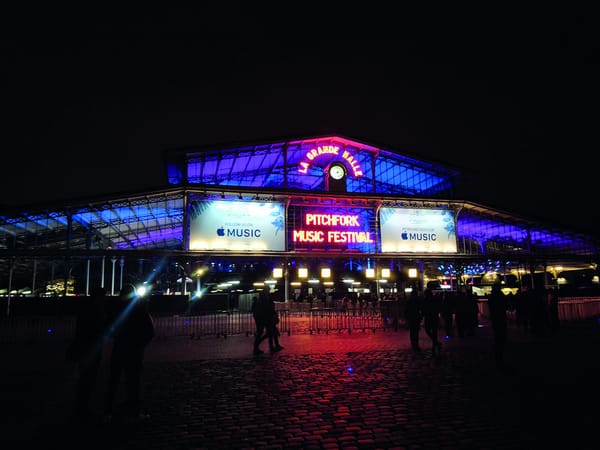Cohen’s light has gone dark, but the night will not have him
Cohen’s last album marks the end of a legendary career. Filled with mellifluous lyrics and soul-stirring music, it has been received with critical acclaim. Sadly 2016 has stolen another great, but can an artist like Cohen ever really leave us behind?

This is not strictly a review. Given the circumstances it can’t be. Instead, it is a look at how an album takes on a new life when its creator passes away so shortly after its release – or, more appropriately, how an album allows for the continuation of a life that is no more. If you read practically any of the existing reviews for Leonard Cohen’s now final LP, You Want It Darker, you’ll see a string of 4 star, 5 star, 9/10 and ‘A’ reviews. These have not come about from a sense of pity on behalf of the music press – nor could they, the album was released over a fortnight before his sad passing on 7th November – but because the album is quite simply that good.
There’s no mistaking Cohen’s age on You Want It Darker. Reaching his 82nd year during the recording process, his voice has permanently dropped an octave or two since his debut in the 60s. But in alignment with his previous works, the poetry, the religious overtones, and most importantly, the humour remain. It’s easy to miss behind the melancholy of the music that Cohen has delivered over the last 5 decades, but his dry wit is what sets him apart from the majority of his contemporaries: “I heard the snake was baffled by his sin, he shed his skin to find the snake within”, “I struggled with some demons, they were middle class and tame”. It’s not laugh out loud like a Randy Newman song, but upon reflection you can spot the nods and winks laying within the harrowing subject matter. On a side note, Is This What You Wanted is perhaps the best example of the juxtaposition of pain and humour in Cohen’s career. Away from Leonard’s own performance, the instrumentation on You Want it Darker is second to none. From the driving baseline of the album’s title track, to the surf-rock guitar of Leaving the Table, and the devastatingly beautiful strings near the album’s end, Cohen, his son Adam, and Patrick Leonard are to be commended for the production across the 35 minute run time. Not forgetting, of course, the female backing vocalists, a constant in Cohen’s music as much as the wit, but who take on a new life when heard alongside the now deeper voice of the Canadian singer.

You Want it Darker is the third studio album to be released by Cohen since 2012, Old Ideas and Popular Problems being the predecessors, a prolific streak accompanied by relatively consistent touring since 2008. Much of this, it is speculated, is down to money problems. In 1994 Cohen had all but retired from music; the singer moved to the Mt. Baldy Zen Centre, a Buddhist Monastery in the Californian Mountains, to the West of Los Angeles. He was ordained a Zen Buddhist monk in 1996, and stayed at the centre until 1999. During this period and into the 2000s Cohen’s manager and former lover, Kelly Lynch, managed his finances, but recklessly. Lynch effectively stole millions of dollars from Cohen. Despite suing and winning in 2005, Cohen never got his money back, much of which was a retirement fund. So came the tours and albums, though Cohen enjoyed his return to musical relevance so much that they continued well beyond the point of necessity. What was so remarkable about this return to song writing, however, is not how it came about, but that the resulting music was so great. Many an artist has delved back into the studio after a long period of musical silence, lured by the promise of rekindled wealth, only to produce frankly dire and sickeningly nostalgic albums. Unlike most, Cohen entered a completely new artistic period in his career, which was received with acclaim from fans and critics alike. A dazzling climax for one of modern music’s great heroes.
Much was made in January of this year at the poignancy and beauty of David Bowie’s Blackstar – he knew his death was upon him, and his lyrics and music reflected that in a devastatingly wonderful manner. Comparisons of Cohen’s and Bowie’s final releases are inevitable – both men lost their lives to cancer. What sets the events surrounding You Want It Darker apart from Blackstar, however, is the time between album release and artist’s death. For Bowie, this was just two days, while for Cohen, over two weeks. Reviews of Blackstar were thus rife with analysis of Bowie’s last hurrah. With You Want It Darker, there was time to assimilate and see an album beyond just a swansong. On the face of it, the album is a collection of love songs, a lost love, a love that keeps the world from going cold, and of a love for our protagonist’s saviour (Treaty, If I Didn’t Have Your Love, and Travelling Light, in that order).

Of course, from this week all of that has changed. For the generations of Leonard Cohen fans to come, of which there will be many, the swansong will be heard from the first line of the opening track. Now lyrics like “Hineni, Hineni. I’m ready, my Lord” (‘Hineni’, from the Torah, and Hebrew for ‘Here I am’), “I’m leaving the table, I’m out of the game”, “I’m travelling light, it’s au revoir” paint a picture as clear as day, of a man on the edge of passing. Perhaps it’s denial, or simply to avoid being rude, but few predicted this would be Cohen’s last album (Will Hermes, of Rolling Stone being an exception). This is even despite Cohen spelling his fate out to us all, without any lyrical metaphors, back in July. His most famous muse, Marianne Ihlen, passed away at 81 on 29th July this year. Before she died, Cohen sent a letter to his dear friend: “Well Marianne, it’s come to this time when we are really so old and our bodies are falling apart and I think I will follow you very soon. Know that I am so close behind you that if you stretch out your hand, I think you can reach mine”. Even when accepting his own demise, poetry does not fail him. The final track on You Want It Darker is the most poetic of all. Strong Reprise/Treaty opens with a string version of the piano melody from the album’s second track, Treaty. Yet Cohen’s voice and lyrics – the defining aspects of a now completed discography – are nowhere to be heard. The strings continue, but Cohen does not. Time has at last caught up and the singer is silent. And then, with but seconds left, he bids his last goodbye.
“I wish there was a treaty we could sign / It’s over now, the water and the wine / We were broken then but now we’re borderline / And I wish there was a treaty, I wish there was a treaty between your love and mine.”
Leonard Cohen the man is now, sadly, dead. Leonard Cohen the singer, poet, lyricist, guitar player, and musician – whose influence and impact is unquantifiable – lives on.







